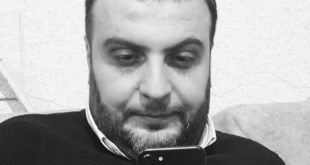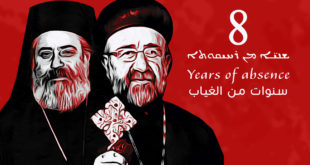ADO – Press : An Arab League delegation tasked with restarting dialogue between President Bashar Assad’s government and the country’s diverse opposition to end the country’s eight-month crisis arrived in the capital Damascus Wednesday. But despite claims, the talks were “cordial and frank,” prospects for dialogue seemed dim, with the government insisting any talks should take place inside Syria and not at the League’s Cairo headquarters, and opposition groups insisting conditional talks would only be aimed at ending Assad’s rule.
Assad met the delegation of Arab ministers, headed by Qatari Prime Minister Sheikh Hamad al-Thani, as Assad supporters put on another show of strength with a mass rally at Umayyad Square in central Damascus, and more reports of violence leading to the deaths of at least 20 people.
The ministers said they would meet Syrian officials again Oct. 30.
In the central city of Homs, a hotbed of opposition to Assad, a general strike was called in protest against Assad’s continued crackdown, which the U.N. estimates has killed 3,000 people.
Residents and activists said most employees stayed at home and shops were closed in the city of one million. One resident said insurgents enforced the strike. Army gunfire, which killed 11 people across Syria Wednesday, also kept people off the streets.
In the town of Hamrat, north of Homs, suspected army deserters killed nine soldiers in an attack on a bus with a rocket-propelled grenade, the Syrian Observatory for Human Rights said. It was the latest incident in an armed insurgency emerging alongside the campaign of street protests.
Assad faces international pressure over his crackdown, with the United States and the European Union slapping sanctions on Syrian oil exports and businesses, helping drive the economy into recession.
“This will end with the fall of the regime. It is nearly unavoidable,” French Foreign Minister Alain Juppe said Wednesday.
“But unfortunately it could take time because the situation is complex, because there is a risk of civil war between Syrian factions, because surrounding Arab countries do not want us to intervene,” he told French radio.
At Umayyad Square, tens of thousands of people gathered for what has become a weekly show of support for Assad organized by authorities.
State television aired footage of demonstrators waving Syrian flags and portraits of the president, rallying under the slogan “Long live the homeland and its leader.”
The rally took place before the envoys from six Arab nations arrived in Damascus for talks with Assad following their call Oct. 16 for the opposition and government to hold a dialogue within 15 days at the League headquarters in Cairo.
“What is hoped is that the violence will end, a dialogue will start and reforms will be achieved,” Arab League Secretary-General Nabil Elaraby said of the delegation, which is led by Qatar and includes Egypt, Algeria, Oman, Sudan and Yemen.
Syria has rejected previous Arab initiatives, and it was not clear if this would be different, or if the government was trying to gain time to crush the uprising.
The Arab officials’ visit follows a meeting in Cairo last week by the 22-nation Arab League, which gave Syria until the end of the month to end military operations, release detainees arrested in the crackdown, and begin dialogue with the opposition.
But speaking to The Daily Star following the visit from the Arab League delegation, spokeswoman for the umbrella opposition group, the Syrian National Council, Bassma Kodmani reiterated the council’s firm opposition to any dialogue while the crackdown continued.
“There is no chance for dialogue while the violence continues,” she said.
In earlier comments Kodmani said that “even if the right conditions for dialogue prevail, the only thing to discuss would be a road map for the peaceful transfer of power,”
Responding to what that road map would entail, Kodmani said that discussions were “on hold” in the face of continued killing of protesters.
“It would be premature to discuss the roadmap at this point.”
Asked whether she believed there was any hope for the killing to cease and those conditions be met, Kodmani said: “No, there is no indication that the regime is willing to stop [the killing].” The SNC said in a statement Tuesday it was worried the Arab League initiative “did not distinguish between the victim and the executioner’ and called for “international protection for civilians” in the form of international observers to be allowed in to the country to monitor the situation.Kodmani said the demand for international observation on the ground was “legitimate and realistic.”
Assad’s government says it is serious about political reform, which it asserts militants are trying to wreck. The opposition says Assad has no intention of relaxing his grip on power, pointing to a rise in killings, torture, arrests and assassinations.
Human Rights Watch said the Arab mission should demand that Syria allow in independent civilian monitors. “The only way to make sure civilians are protected is to have on-the-ground monitors whose presence would inhibit abuse by the security services,” HRW Middle East director Sarah Leah Whitson said.
Assad is from the minority Alawite sect in a mostly Sunni Muslim country. Sensitive to the reverberations if he were to fall, leaders of mostly Sunni nations across the Middle East have been cautious about criticizing him or taking action, as they struggle to deal with unrest.
In Homs, residents said public employees took part in the strike for the first time, and only a few food shops were open. Video footage on the Internet showed shuttered shops on both sides of a main street in the nearby region of Houla.
In Deraa the impact was reportedly even greater. “There is total closure. Streets of Deraa are empty, even the few butcher shops and pharmacies that were open are now closed,” said Jasem Masalmeh, a resident of the provincial capital.
Syria has barred most foreign media, making it difficult to verify accounts from activists and authorities.
In separate developments, The United states said Wednesday it hopes it’s ambassador to Syria, Robert Ford, who was brought home after threats to his safety, would be returned to Damascus by Nov. 24.
 Assyrian Democratic Organization ADO
Assyrian Democratic Organization ADO






